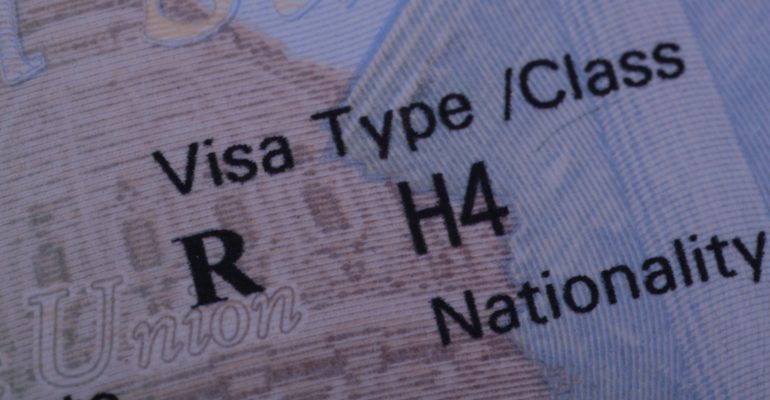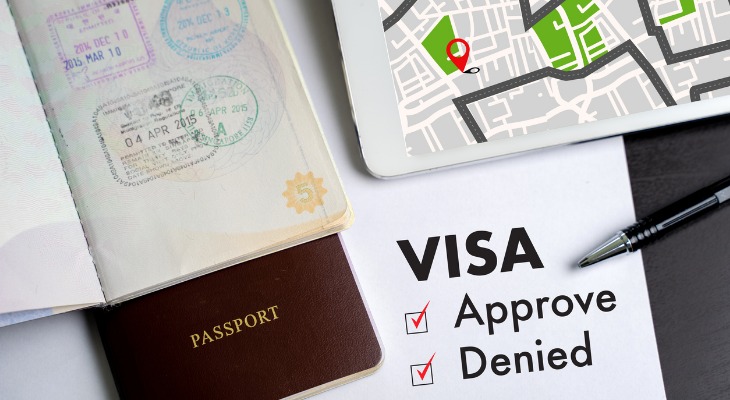Individuals applying for F-1 student visas face extremely high stakes. The decision of the visa interview will determine where you will spend the next four years — or longer — for those young adults accepted to universities. That interview will determine your family’s goals and dreams. A job promotion or marketability may be at stake for people looking to enroll in an English language program. An MBA from a US university may represent the difference between a rising career and stagnation for a graduate student.
Despite the fact that there is so much at stake, and hundreds of thousands of student visa applicants are denied each year, these individuals frequently fail to take fundamental efforts to improve their prospects of getting the visa.
If your visa application is approved, you will be able to pick up your passport and visa at the US Embassy. Following your interview, you will be told of the exact time you can pick up your visa.
You may always monitor the status of your application at https://ceac.state.gov/CEACStatTracker/Status.aspx. Please check the progress of your application at least three business days after your visa interview. Because the system may not have updated the status of your application prior to that time, the notice you get may not accurately reflect the state of your application.
To obtain your passport, you must provide the blue ticket stub that was given to you during your interview.
If a representative collects your passport from the document collection office on your behalf, even if it is a family member, the representative must produce your ticket stub, which was obtained following a successful interview.
Some Reasons for Denial
1. Country of Origin
The country of nationality is the most important aspect in the outcome of a student visa application. In general, a student from economically developed and politically stable Germany should have little trouble, whereas applicants from Afghanistan, Congo, and Uzbekistan have the odds stacked against them. (While the Department of State does not provide nation denial numbers for student visa applications, B visa refusal rates are available and provide a very rough estimate of how students from those countries are treated.) Unless a prestigious employment awaits the applicant’s return to a less developed country, it may be difficult to overcome the odds and obtain a student visa in some situations.
2. Ties
The strength of one’s ties is assessed through the age lens. For young applicants, the jobs of their parents — the “Who’s your Daddy?” test — may become a crucial factor in the evaluation (rightly or erroneously). If the applicant’s father “works with his hands,” the applicant may be perceived as coming from a poorer family, making immigration more difficult. As part of this standard-of-living consideration, the consul may show less fealty to persons from rural areas or small towns and be more inclined to deny them than those from large cities.
Read Also: How Can I Get F-1 Visa From India?
A lack of travel to Eurozone nations may be viewed negatively by the consul, indicating the family’s precarious financial situation and lack of discretionary resources, or it may reflect a “sheltered” candidate who has not yet seen the world. The consular thinking appears to be “visit some other countries and then ‘graduate’ to a US student visa.” The consul may regard student visa applicants in their early to mid-20s as “tweeners”: too old to be a new student, yet too young to have established a career or significant links in their native country. Working for a company in the home country for less than a year after graduating from university may suggest instability or wanderlust, which is not favorable to awarding a student visa.
3. Interview Problems
Because student visa interviews are usually approximately 2-3 minutes long, the applicant only has one chance to create a good first impression. And it is the first impression that is important. While a consul is not meant to assess an applicant’s English, insufficient English is considered. The failure to describe the reasons for choosing the university could be disastrous. Inability to define how a program fits into one’s career goals is also grounds for rejection.
Inability to respond to simple, common queries (for example, “What are your plans after graduation?” Long, convoluted responses to questions like “What does your father do?” are difficult. The candidate’s demeanor during the interview is also important: inertness or inactivity, as well as a lack of ambition, can all work against the applicant. Unpleasant elements include nerves, poor body language, looking down, unpleasant vibes, poor or flashy dress.
4. Inadequate or Inadequately Documented Finances
The student visa applicant must be able to demonstrate financial capability for the first year of an academic program. Consuls appointed in underdeveloped nations are especially vigilant in this regard. Bringing a bank statement indicating a $50,000 transfer to your sponsor’s account two days before the interview raises the issue of the source and whether the funds are genuinely accessible to pay for the school. Parent-sponsors in low-paying government employment may face mistrust. Friends who are sponsors may likewise raise concerns: how serious is this family friend’s commitment? What is your level of familiarity with this uncle-sponsor? How long has it been since you last saw him?
5. Previous US Visa Denial
While a recent previous US visa denial is not fatal for a student visa applicant, it is a significant negative mark. You may be certain that the consul will look through the reason for the visa denial and see if it “translates” to the student visa application as well. For example, if you sought for a visa to visit the US to attend a friend’s wedding, a “lack of ties” weighed into the denial, and this will also result in a student visa refusal. If the denial was recent, the present officer may even speak with the prior consul about “what happened” at the initial interview.
The consul may create the idea that you are seeking a visa “by hook or crook”: “Two months ago you tried to go to the US to ‘attend a wedding,’ now you ‘want to be a student.’” It seemed suspicious to the consul. Applying for a F visa does not “solve” a previous B visa difficulty.


